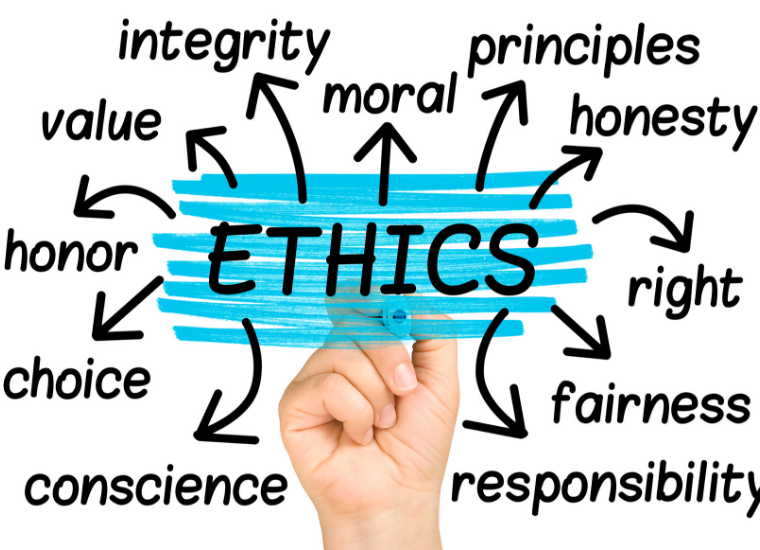In his collection of meditations, Deep is the Hunger, Howard Thurman asks this question: “Is this a world with moral meaning at the center?” He goes on to say that this is not a question that can be answered with empirical research or an accumulation of data. Instead, he says it is a “basic act of faith” to say there is a moral meaning at the center of life. In other words, living and thinking morally is a choice we make based on our deepest values, whether they come from religion or concern for human well-being or some other ideology.
To ask if life has moral meaning is different than simply asking is there meaning to a person’s life. Individuals, corporations, and nations can construct a meaning to explain their actions, such as the pursuit of profit, world domination, personal advancement, and the like that at their best are amoral, but in many cases sacrifice ethics and morality in the pursuit of personal, corporate and national gain. How else can we understand the recent revelation of hundreds of the world’s wealthiest and powerful individuals hiding their wealth in tax havens and shell companies, protecting them from taxation that might help their national economies? And when it comes to the Big Lie, how does one justify continuing to contest the 2020 presidential election, forbidding the teaching of the whole of U.S. history (including its less savory parts such as slavery and institutional racism), and threatening the livelihood of those teachers and administrators who would dare to talk about the impact of racism our society today?
Thurman points out: “We may decide intellectually in favor of [moral} meaning, only to find ourselves casting a dissenting ballot.” Those who propagate the Big Lie often do so by trying to make claim to a moral position such as protecting children, affirming life, and strengthening the family, but do so in a way that is exclusive to their personal and political opinions and gains. And lest we think that it is only conservative Republicans who do such things, there is any number of liberal Democrats who justify their immoral actions with moral excuses, as well.
 The health of our democracy is dependent on people thoughtfully pursuing the highest good as they understand it. Sometimes people may come to different positions based on equally ethical and moral intents. Just because someone sees an issue differently than us does make them morally inept and we morally superior; it simply means we have come to different conclusions. But when those differences are fed misinformation (more to the point, lies) that are enacted through threats, intimidation or even violence, then we are dealing with something that is inherently unethical, immoral, and dare I say, evil.
The health of our democracy is dependent on people thoughtfully pursuing the highest good as they understand it. Sometimes people may come to different positions based on equally ethical and moral intents. Just because someone sees an issue differently than us does make them morally inept and we morally superior; it simply means we have come to different conclusions. But when those differences are fed misinformation (more to the point, lies) that are enacted through threats, intimidation or even violence, then we are dealing with something that is inherently unethical, immoral, and dare I say, evil.
Thus, as we seek to counter and contend with the forces of The Big Lie, be it about election outcomes, the ways racism is taught in schools, how laws banning abortion are passed or the way election districts are gerrymandered, we need to approach these issues not simply from a political position, but also from a moral and ethical center. Politics is a complex and sometimes difficult business, but it must be built by calling attention to immoral motives of power and greed accomplished through lies and denigration of character. If we choose to act and respond in a manner similar to those who promote the Big Lie, in the end we will be no better off than those we seek to defeat.
Given the current political state of affairs in this country, to think in terms of morality and ethics may seem naïve. But it seems to me that if we think our effort to seek justice, equity, and a respect for truth and honesty can be gained through immoral and unethical means, that is even more naïve. As Thurman says, “Words become true when they are lived and they become untrue when they are neglected.” It may seem too much to ask many of our current legislators at the Federal, State, and Local levels to act from a moral and ethical center, but to not do so is to invite deeper polarization and peril. And even more to the point, if we don’t think, speak and act in ways that truly reflect our moral values, we have no standing on which to call others to govern ethically and morally as well. To be clear at this moment in our nation’s history, we are not just in the midst of a battle over different political opinions, we are in a cosmic battle over whether we chose, to live, act and relate to each other from a moral or ethical center or not. Will our outcome be shaped by lies fighting with other lies, or will we be people, leaders, and a nation willing to admit our failures, learn from them, and move forward with a sense of dignity, truth, and living up to the moral meaning of our lives?
Source: Howard Thurman (1951). Deep is the Hunger. Harper and Row, pp. 68-70.


You are on point as usual my friend.